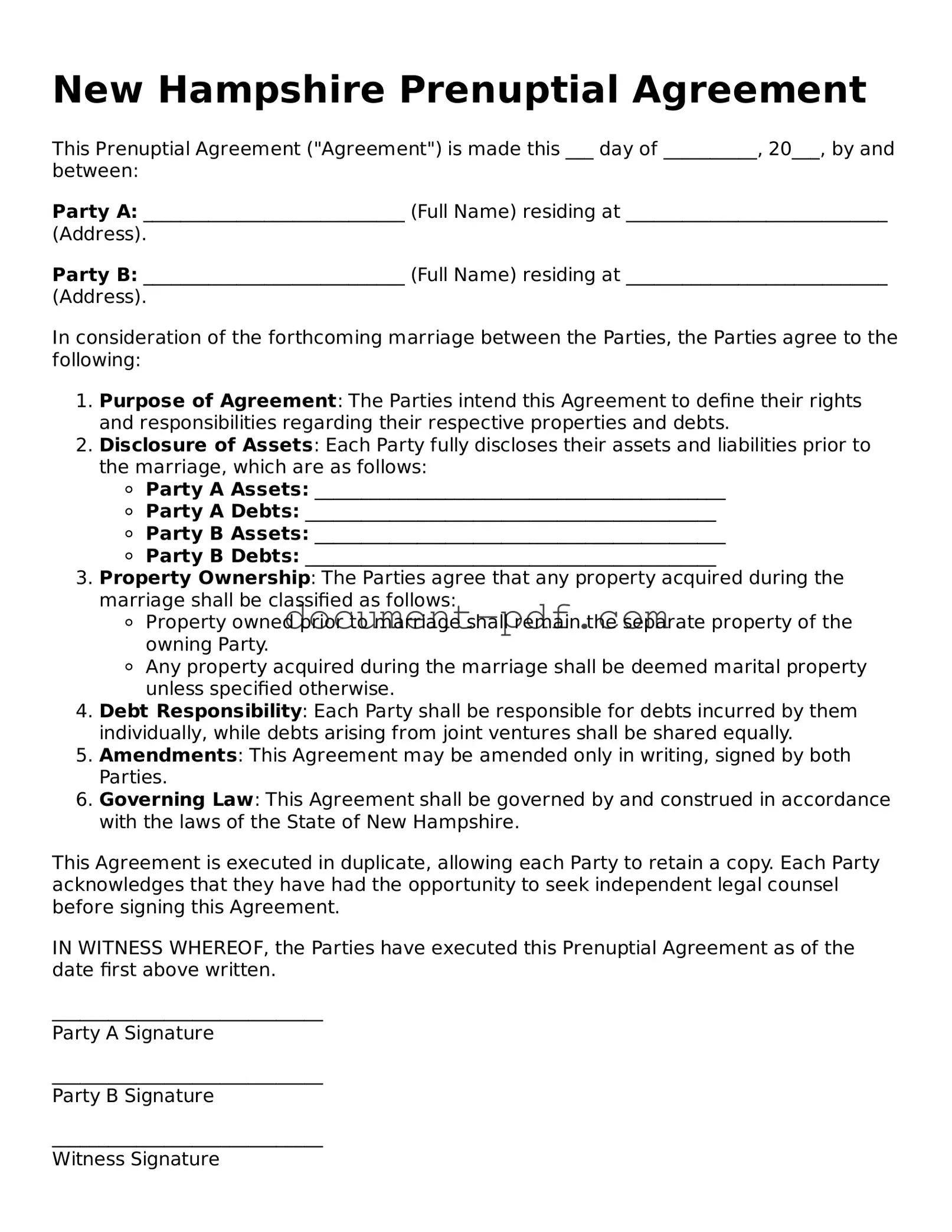Attorney-Verified New Hampshire Prenuptial Agreement Template
A Prenuptial Agreement is a legal document that outlines how a couple's assets and debts will be handled in the event of a divorce or separation. In New Hampshire, this agreement can provide clarity and protection for both parties, ensuring that each person's rights are respected. If you're considering a prenuptial agreement, take the first step by filling out the form below.
Access Prenuptial Agreement Editor Here

Attorney-Verified New Hampshire Prenuptial Agreement Template
Access Prenuptial Agreement Editor Here
Finish the form without slowing down
Edit your Prenuptial Agreement online and download the finished file.
Access Prenuptial Agreement Editor Here
or
Click for PDF Form
